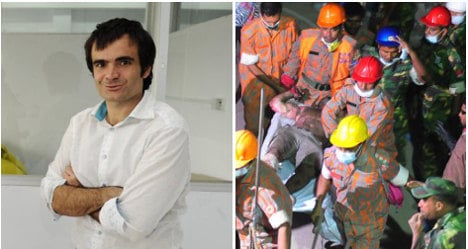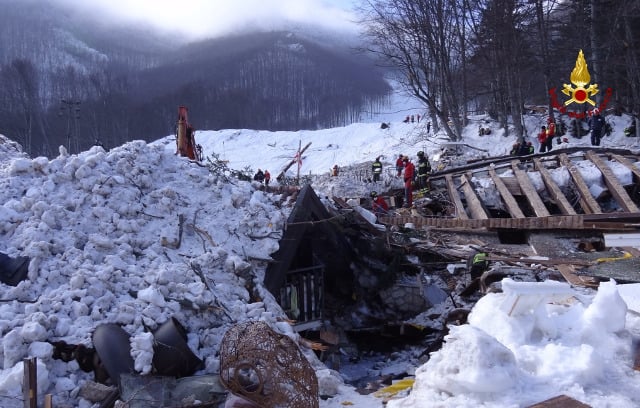Mayor is the fugitive managing director of the Phantom-Tac apparel factory, a joint Spanish-Bangladeshi venture housed in the eight-storey Rana Plaza which collapsed last Wednesday, killing at least 381 people.
Bangladeshi police told AFP on Sunday they had filed preliminary charges of "causing death due to negligence" against him.
The remaining four owners of factories inside the illegally-built block have been arrested.
Catalan TV channel TV3 reported on Sunday that Mayor was last seen at a family celebration in his local town of Reus but that no arrest warrant had been filed against him by the Spanish authorities.
The case against Mayor and his business associates was filed after survivors told police how managers had forced them to return to work on Wednesday even though the building developed visible cracks a day before, triggering an evacuation.
Mayor, who spoke to AFP in March 2009 about his company, was working to land a lucrative contract with Spanish label Mango which had ordered samples of various products between January and March this year, according to documents seen by AFP.
Other past clients whose products were cut and sewn in his airy factory with white walls and large windows included Spanish brand Cristian Lay, German sportswear label Medico and Denmark's Mascot Workwear.
In 2007, the shaggy-haired Mayor gave up his career as a fashion buyer in Spain because he was fed up with not being able to control workers' conditions and his conscience was bothered by reports of "sweatshop" labour.
"Since the beginning I was a bit concerned about the social issues and it was a personal thing," he told AFP in 2009 at his factory, which was funding a separate training centre where women learned how to sew, as well as English and mathematics.
He is now "accused number four" in the police investigation report into the disaster, and his business will be forever associated with the worst disaster in the local industry's history that has further tarred Bangladesh's reputation.
But his background casts a new light on the story, suggesting that at least some of the factories in Rana Plaza appear not to be the typical "sweatshops" decried by campaigners.
While Mayor appeared to have tried to improve working conditions for his hundreds of employees, Rana Plaza was an accident waiting to happen.
Like many other factories around the capital, it appeared to have violated the building code because of illegal construction, leading to the cracks and ultimately the implosion of the structure on Wednesday morning, police say.
Millions of mostly female garment workers work in Bangladesh's textile sector for the lowest wages in the world, earning as little as $37 a month while facing often dangerous working conditions and abusive employers.
In November, 111 people died in a fire at a factory where clothes were being made for Western brands including Walmart and C&A. Investigators found inadequate fire equipment and locked emergency exits.
Mayor did not return emails or calls from AFP about last week's disaster.
"We are a factory. Prices are tight. Every single cent is important. We are not an NGO, but in addition we have this social concern," he told AFP in the 2009 interview.
Mayor's business partner Aminul Islam, who is the chairman of the company, was arrested on Saturday. The Spanish entrepreneur's whereabouts remain unknown.




 Please whitelist us to continue reading.
Please whitelist us to continue reading.
Member comments